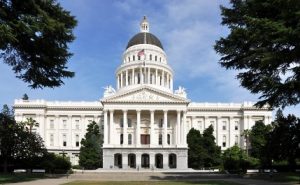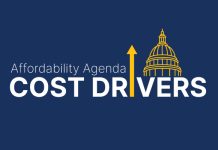 Two California Chamber of Commerce job killer bills will be heard in legislative policy committees tomorrow morning. The Assembly Judiciary Committee is scheduled to consider AB 2188, which creates an unprecedented, protected class for marijuana users and undermines employers’ ability to provide a safe and drug-free workplace. The Senate Judiciary Committee will consider SB 1162, a bill that encourages lawsuits against businesses and makes hiring more burdensome.
Two California Chamber of Commerce job killer bills will be heard in legislative policy committees tomorrow morning. The Assembly Judiciary Committee is scheduled to consider AB 2188, which creates an unprecedented, protected class for marijuana users and undermines employers’ ability to provide a safe and drug-free workplace. The Senate Judiciary Committee will consider SB 1162, a bill that encourages lawsuits against businesses and makes hiring more burdensome.
AB 2188
AB 2188 (Quirk; D-Hayward) risks workplace safety by promoting marijuana use to a protected class under California’s discrimination law, on par with national origin or religion. The proposal also effectively prohibits pre-employment drug testing, harming employers’ ability to keep their workplace safe and drug free. In addition, this bill would prohibit use of traditional marijuana tests, such as urine and hair testing, and compel employers to utilize saliva-based testing.
In an opposition letter submitted to Legislators over the weekend, the CalChamber argued that under California law, marijuana should be treated like alcohol–its use is legal in certain settings, but impairment must be kept out of the workplace.
AB 2188, the CalChamber said, goes far beyond that.
The bill would:
- Elevate marijuana use to a protected trait under California’s Fair Employment and Housing Act (FEHA)– in line with protections against discrimination that are provided for such important traits as race, color, national origin, religion, age, disability, sex, gender, sexual orientation, marital status, or military status. Specifically, AB 2188 would prohibit employers from taking any disciplinary action against an employee based on the employee’s “use of cannabis off the job and away from the workplace.”
- Result in lawsuits over necessary pre-employment testing for marijuana. AB 2188’s broad language draws into question the legality of pre-employment testing by creating a protected classification for workers who used marijuana regularly and had marijuana in their system at their pre-employment drug test. For example: if AB 2188 were to pass and an employee’s pre-employment drug test came back positive for marijuana—the employer could likely not take any action with that information because AB 2188 creates FEHA protections for marijuana use that is “off the job and away from the workplace.” An employer who rescinds their offer of employment based on the test would likely be sued by the employee, claiming that their use before the drug test was “away from the workplace”—and therefore could not result in discipline.
SB 1162
SB 1162 (Limón; D-Goleta) encourages litigation against employers based on the publication of broad, unreliable data collected by the state. The proposal undermines employers’ ability to hire, imposes administrative and record keeping requirements that are impossible to implement, and subjects employers to a private right of action and penalties under the Private Attorneys General Act (PAGA).
Section two of SB 1162 contains several provisions that are difficult if not impossible to implement. First, proposed section 432.3(c)(2) requires third parties to provide the pay scale to applicants that view the job posting. It then holds the employer liable under a statutory private right of action and PAGA if the third party fails to do this regardless of the fact that it is impossible to monitor the third party at all times.
Additionally, that subsection requires the third party to provide the pay scale to applicants who “view the job posting.” It is unclear at what point the third party must disclose the pay scale and how a third party can track who is viewing certain advertisements. Again, any error here by the third party will lead to liability for the employer.
Sections two and three of SB 1162 each contain a private right of action and suffer from flaws regarding implementation. Because they amend or create new sections of the Labor Code, they also expose employers to lawsuits under PAGA. It is unfair to penalize employers for requirements that are impossible to follow.
More significantly, one of the biggest issues with the overreach of PAGA is that a plaintiff need not show harm to bring a PAGA claim. This means that any employee, even one who was not interested in the open job position, could bring a claim under PAGA for a violation of these sections.
Similar to what is proposed in SB 1162, a 2017 bill, AB 1209 (Lorena Gonzalez; D-San Diego), would have required the publication of data from employers on mean wage differentials between male and female employees. In a Sacramento Business Journal article that year, a member of the plaintiff’s bar stated: “By posting this on the Secretary of State’s website, the government is basically giving us (plaintiff lawyers) the data we need to go in there and hammer companies.”
Governor Edmund G. Brown Jr. vetoed AB 1209 due to this exact concern, stating in his veto letter: “…it is unclear that the bill as written, given its ambiguous wording, will provide data that will meaningfully contribute to efforts to close the gender wage gap. Indeed, I am worried that this ambiguity could be exploited to encourage more litigation than pay equity.”
Staff Contacts: Ashley Hoffman, Robert Moutrie

